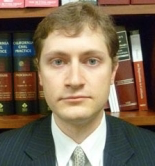Grinberg: SB 1127 Signed Into Law
Thursday, October 6, 2022 | 1
On Sept. 29, Gov. Gavin Newsom signed Senate Bill 1127 into law. As my readers may recall, this blog touched on earlier versions of the bill, but the one signed into law isn’t much better.

Gregory Grinberg
As enacted, SB 1127 reduced the normal investigation period of 90 days to 75 and imposes up to $50,000 in penalties for “unreasonably denied benefits” as part of a denial in certain presumption cases (generally firefighters, law enforcement and such). It also increases TD from 104 weeks to 240 weeks for firefighter and law enforcement presumption cases as found in Labor Code Section 3212.1.
Defendants affected by the presumption cases will be put in the untenable position of having to investigate the causation of a claim within 75 days or face up to $50,000 in penalties for not accepting it. We can all do the math: If a particularly responsive adjuster manages to get a delay letter out on the same day as receiving the claim form, that’s at least 15 days before a panel can be requested. In pro per cases, that has to be done by mail, but let’s assume this is an issue in a represented case and a panel can be obtained immediately.
Well, there are another 15 days for the strike process, which makes 30. Now the employer has 45 days left to get a report upon which to issue a denial. The regulations allow for up to 90 days for an appointment and another 30 days for a report after that.
How is the employer supposed to get a QME report upon which to contest causation before it’s forced to deny the claim pending the investigation? Well, it’s not. The purpose of SB 1127 is to turn joint powers groups, local municipalities, cities, counties, fire districts, etc., into piggy banks for the presumption class of employees.
Now, if you’re thinking “That’s what you get!” after you got a parking ticket and were forced to pay it, don’t get too excited. As is often the case with Sacramento, this is a test. The face-value beneficiaries of this legislation are sympathetic (police and firefighters, mostly) and have a robust and strong union. But rest assured, this is a test of how the system will work.
Once this is firmly in place and part of the routine for the public sector, such legislation will surely follow to further plunder the private sector. Sacramento will, of course, consider pushing the investigation period down to 75 days for all employers and impose similar penalties for failing to accept a case.
So, how should we change claims handling in light of SB 1127? Well, for starters, we should be reserving more for potential TD exposure. Additionally, the employers and supervisors should be updated on claims-handling procedures and reminded of how important it is to report the receipt of a claim form/notice of injury IMMEDIATELY.
Claims handling should continue to thoroughly document the files and be prepared to challenge claims of “unreasonable” rejection of liability, asserting a record of diligent investigation, prompt requests for panel and writing to the QME, possibly even deposing physicians if necessary.
Buckle up, dear readers. This is going to be a bumpy ride.
Gregory Grinberg is managing partner of Gale, Sutow & Associates’ S.F. Bay South office and a certified specialist in workers’ compensation law. This post is reprinted with permission from Grinberg’s WCDefenseCA blog.





Comments